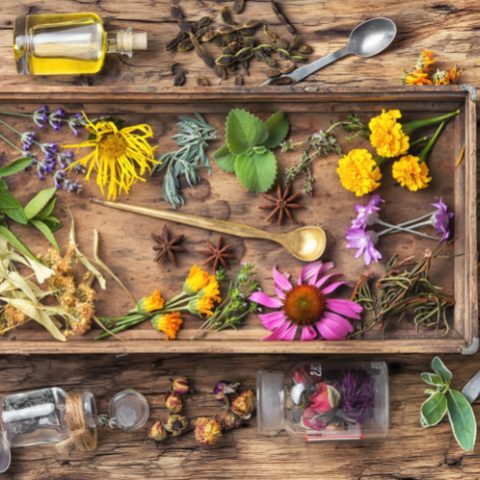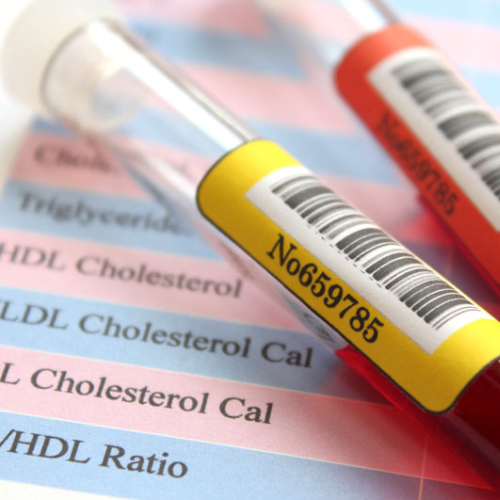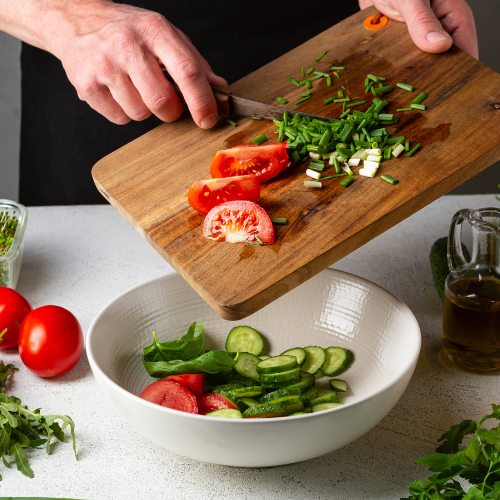Do you have days when you’re just not feeling at the top of your game?
Maybe you’re experiencing a degree of stress and anxious feelings when feeling the pressure that can come with exams, work deadlines or relationship issues? Or maybe you have been feeling down, sad and not in the mood to be social?
These feelings are usually part and parcel of life for everyone. However, for some, these feelings just don’t go away. It can have a crippling effect on your life, stopping you from doing the things you love and causing damage to the relationships in your life.
Each year, the prevalence of depression and anxiety is increasing. In fact, according to the World Health Organization, an estimated 3.8% of the population suffers from depression, including 5% of adults and 5.7% of those who are 60 years and older. Approximately 280 million people in the world have depression!
According to large population surveys, up to 33.7% of the population are affected by an anxiety disorder during their lifetime.
There are a variety of contributing factors that may lead to the development of depression or anxiety. These could be ongoing stressful circumstances, thyroid dysfunction, nutrient deficiencies, substance abuse and addictions, trauma and having low self-esteem. Food allergies, genetic disposition, unhealthy lifestyle choices, cancer and even side effects of medication can also contribute.
While identifying the underlying drivers is essential in treatment, nature offers us an arsenal of herbal remedies that can help to support mental health and reduce symptoms of anxiety and depression.
1. Turmeric (Curcuma longa)
Turmeric is perhaps the best-known herbal remedy for mental health, and for good reason. Studies have found curcumin, the bioactive ingredient in turmeric, to be just as effective as conventional antidepressants (SSRIs) in treating depression and supporting a healthy mood. It is a potent anti-inflammatory and antioxidant and protects the brain from toxins and free radicals.
It increases neurogenesis (the formation of new brain cells) by modulating the hypothalamic-pituitary-adrenal (HPA axis) and by increasing brain-derived neurotrophic factor (BDNF). Studies have shown that the expression of BDNF, a key molecule found in the brain involved in plastic changes relating to learning and memory, is decreased in depressed patients. Curcumin also influences serotonin and dopamine activity, two neurotransmitters associated with a happy and healthy mood.
2. St John’s Wort (Hypericum perforatum)
Another herb known for its use in depression and anxiety is St John’s Wort. Studies have shown that not only is St John’s Wort superior to placebo but it is just as effective as conventional antidepressants with fewer side effects. It works by reducing the production of cortisol and increasing the levels of serotonin, norepinephrine, and dopamine, thus improving mood.
St John’s Wort needs to be used with caution as it affects a liver enzyme (cytochrome P450), causing it to metabolize many drugs faster. It may therefore reduce the effectiveness of blood thinners, immunosuppressants, oral contraceptives and protease inhibitors, among other medications. It may also cause serotonin syndrome if combined with an antidepressant.
3. Saffron (Crocus sativus)
Saffron is another great herb for treating depression. Research shows that active compounds in saffron inhibit the reuptake of dopamine, serotonin, and norepinephrine and modulate serotonin and dopamine neurotransmission.
Studies have also shown that saffron supplementation reduces markers of both inflammation and oxidative stress, both of which can affect brain health and lead to depression.
An analysis of eleven randomized controlled trials found that supplementing with saffron significantly reduced depressive symptoms in adults with major depressive disorder compared with placebo. What’s more, they showed that saffron is just as effective as conventional antidepressants with fewer side effects.
4. Kava (Piper methysticum)
Kava is one of the best-researched herbs for acute anxiety relief. Randomized controlled trials have shown that exercise, relaxation training, and the plant kava are the most effective complementary treatment options for generalized anxiety. The herb acts fast making it especially useful in acute situations.
Kava promotes relaxation by promoting GABAergic activity (GABA is your calming neurotransmitter) and relaxing the muscles without sedating the brain.
Note: Kava should only be used under the supervision of a qualified health practitioner as it is contraindicated in people with liver disease, pregnancy, and other conditions, as well as with people taking certain medications.
5. Lemon Balm (Melissa officinalis)
Lemon Balm is another herb that has been used for anxiety with depression due to its calming effects. It is a member of the mint family and was used back in the Middle Ages to reduce stress and anxiety, promote sleep, improve appetite, and ease discomfort from poor digestion.
One study showed it to be effective in achieving full remission for anxiety in 70% of individuals with mild-to-moderate anxiety disorder and 85% for insomnia, one of the major symptoms of depression. By helping to make GABA, your calming neurotransmitter more readily accessible in the brain, it can help to regulate your stress response.
6. Lavender (Lavender officinalis; Lavandula angustifolia)
Lavender has been used for centuries for nervous exhaustion and insomnia. It has been shown to have comparable positive effects as anti-anxiety medication in adults with Generalised Anxiety Disorder.
Lavender contains a compound called linalool which exerts GABAergic activity to promote calmness. Its effects are also due to its ability to inhibit voltage-gated calcium channels, reduce 5HT1A receptor activity (increases in activity of this receptor have been highlighted in the pathophysiology of anxiety in neuroimaging studies), and increased parasympathetic tone.
Lavender can be used in tablet or tincture form and its essential oil is often used too. In a 2017 review, lavender essential oil was found to be an effective anxiolytic agent, inducing a calming effect with no side effects of sedation, as well as a lack of dependence, tolerance, or withdrawal. It also produced faster results than current first-line agents.
7. Passionflower (Passiflora incarnata)
Passionflower is used a lot in herbal formulas for anxiety and insomnia due to its calming and sedative effects. It has also been shown to have comparable positive effects as anti-anxiety medication in adults with Generalised Anxiety Disorder.
Maltol and ethymaltol, passionflower’s most widely studied constituents, are responsible for much of its anti-anxiety effects. In various research studies, these constituents have demonstrated central nervous system sedation (calming and relaxing), and at very high doses, anticonvulsant activity (decreased muscle spasms).
Passionflower is a great herb to take as a tea before bedtime to calm the mind and improve sleep onset and quality, however, as it has the potential to interfere with other drugs, it should be used with caution.
8. Skullcap (Scutellaria lateriflora)
Skullcap has traditionally been used for centuries as a nerve relaxant. It has shown strong protective activity against neurotoxicity-mediated disorders by regulating different cell signalling pathways and by binding to GABA receptors. It also has strong antioxidant, anti-inflammatory, and anti-excitotoxicity properties. Skullcap can be used on an as-needed basis during stressful situations or as a natural sleep aid for the times when your brain won’t switch off.
9. Ashwagandha (Withania somnifera)
Ashwagandha is an Ayurvedic herb that is well-known as a treatment for anxiety and stress. It is classified as an adaptogen, which indicates its ability to regulate physiologic processes and thereby stabilize the body's response to stress.
Ashwagandha has been proven in studies to have effects on anxiety similar to those of standard benzodiazepines. This animal study indicates that herbal supplementation of Ashwagandha is similarly effective in the management of anxiety as are standard prescription drugs, without the harmful adverse effects.
Ashwagandha also possesses significant anti-inflammatory and antioxidant activities and is the only adaptogen that has been shown to improve sleep quality and reduce the time it takes to fall asleep.
The Power of Herbs
For decades, the gold standard for treating depression and anxiety has been antidepressants and anxiolytic medications. Often, these medications fail to produce long-term results and can cause various side effects such as weight gain, nausea, headaches, and insomnia.
While these medications do have their place, nature offers us various herbal remedies that have often been proven to be just as effective and without the accompanying side effects. Before supplementing with any of these nutrients or herbal botanicals, however, it is recommended to consult your healthcare practitioner.
And remember, if you’re suffering from anxiety or depression and are feeling overwhelmed and helpless, there are multiple organizations and resources that you can lean on to make it through a tough time. Don’t hesitate in reaching out.
Your gut health plays a crucial role in the development and treatment of mental health conditions. Sign up for our free masterclass, The Gut-Brain Solution, today to learn more about this fascinating connection.
Recipe Spotlight: Turmeric Congee
Turmeric is one of the most well-documented herbs that can help with anxiety and depression. This golden spice has long been used in Ayurvedic medicine for thousands of years. And its earthy and bitter taste makes this spice a staple in today’s kitchens.
Today’s recipe calls for the addition of turmeric in what is otherwise a bland dish. Congee is a blank canvass that you can turn into a rich, velvety porridge that can either be savory or sweet, depending on the toppings you pick. Add the turmeric to give it a golden color and take advantage of its anti-inflammatory and antioxidant properties. Enjoy!















What Do You Think? Comment Below: